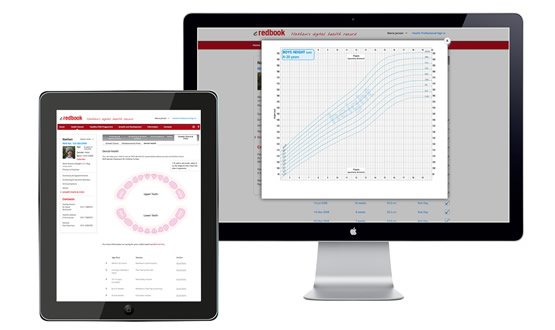London to roll-out eRedbook

A handful of London trusts are about to start trialling the eRedbook child health record, ahead of a capital-wide roll-out over the next couple of years.
Three or four London trusts will test the electronic version of the ‘Red Book’ given to all new parents, in which immunisations, tests, and key developmental milestones are recorded.
Kenny Gibson, NHS England’s head of early years, immunisation and military health, told Digital Health News that the first step would be a technical test to make sure the eRedbook works with all the child health information systems in use in London; TPP, Emis Web, RiO and CareNotes.
But he stressed that he has bigger ambitions for the project which has been developed by Sitekit and Harlow Printing (which prints the paper version) and piloted in other parts of the country, such as Liverpool, where there are now more than 500 users.
The eRedbook was accredited by the Royal College of Paediatrics and Child Health in November last year, and was strongly supported by health secretary Jeremy Hunt this summer, as part of his call for an overhaul of NHS working practices.
“Parents still want the Red Book for the memory box,” Gibson said, “but more and more parents have been asking us for online apps or phone apps.
“NHS Choices had something a bit like a Facebook page, so we looked at that, but it didn’t capture some of the information that parents wanted to collect and store.
“When we saw Sitekit accredited [by the royal college] we thought the eRedbook would be something that we might work with.
“What we want is a secure platform for screening, immunisation and health checks that parents can own and be proud of. We would also like to add apps that provide information and support.”
Gibson added that the project is also looking at the ‘Ages and Stages’ webtool, which holds development questionnaires and activities, and enabling parents to add pictures and videos of a child’s key moments, such as their first steps.
“The paper Red Book is very flat,” Gibson said, “and young mums, in particular, are very dynamic; they take pictures and videos, they use social media. We hope to capture some of that.”
London will be a significant staging ground for the eRedbook, as there are 140,000 pregnancies and 135,000 births in the capital every year.
The intention is that all 32 boroughs and all clinical commissioning groups will use the eRedbook, with roll-out starting next year and continuing into 2017 and 2018.
Gibson said the test areas would not just look at technical issues, but at some of the social challenges of dealing with the capital’s diverse population.
However, he stressed that early experience with the eRedbook had suggested that people who struggled with the written Red Book – which is only available in English – found it easier to use the electronic version, which can be easily translated and accessed through mobile devices with which they are familiar.
The London project is being funded with an underspend on one of NHS England’s public health budgets, plus CQUIN money that has been put aside to improve the quality of data generated by child health information systems.
Daniel Moulin, the director of Sitekit, said the announcement was “a major step forward.”
“After three years of co-designing and piloting eRedbook with parents and clinicians in Liverpool, eRedbook received endorsement from the Royal College of Paediatrics and Child Health and the Community Practitioners and Health Visitors Association,” he said.
“So we are delighted now to be able to offer eRedbook to all parents in London. Implementing eRedbook will help NHS providers meet this year’s CQUIN indicators. We hope it will inspire care providers throughout the UK to offer digital access to personal records for all citizens.”
The government is reportedly planning to push ahead with another of its digital NHS objectives tomorrow, with a reiteration of the announcement that all discharge summaries must be sent electronically from hospitals to GPs from October this year.




